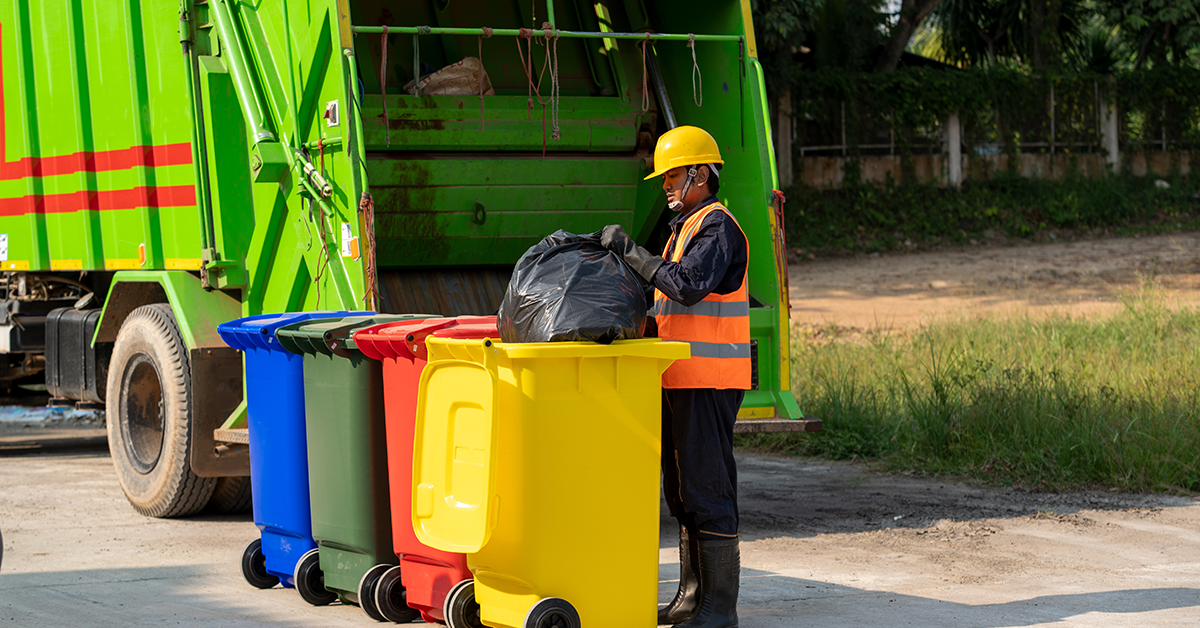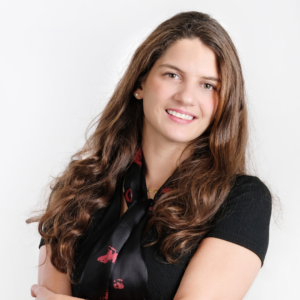
The DAWERR Ideathon 2022 has an open call for innovators interested in solving challenges that municipalities face in the solid waste management sector, from generation to final disposal.
The aim is to introduce financially sustainable solutions that increase the reuse, push for recycling, and monetize solid waste ultimately reducing the amount of solid waste that goes to landfills.
Challenges In Solid Waste Management
Applicants are encouraged to work on one of the four real-life challenges that the team has put together to allow them to create solutions with maximum impact:
Challenge 1: Special waste and rejects: personal hygiene products, tires, glass, furniture and Electronic and Electrical Equipment (EEE)
Special waste is any material that requires special handling due to its size or physical and chemical characteristics. In the case of Lebanon, such materials are poorly managed and quite often end up in landfills.
As much hazardous as they can be, they are rich in resources when treated properly; This makes them a great opportunity to be tackled by local innovators that can unlock the business opportunity in recovering, treating, valorizing, or substituting these types of waste.
Rejects on the other hand are the residual materials that are not diverted through recovery due to the absence of demand for them by the existing recycling industry. In the case of Lebanon special waste most often also end up as part of the rejects.
Below are the key waste materials we need your support in tackling:
Personal hygiene products: such materials include napkins, paper towels, toilet paper, q tips, menstrual pads, cotton pads, etc. These materials are most often rich in carbon and petroleum-based products and have a high energy value. Their main challenges are that they main contain a biohazard while also containing more than one material making their separation difficult. Take the challenge and look for safe and lucrative methods to properly treat this type of waste or bring to market substitutes that are more recyclable or biodegradable.
Tires: vehicle tires are made of steel cables and rubber, once the grip has worn out, they are replaced and old sets are stockpiled at tire shops before ending up in dumps, landfills, or most often open burned for scavenging steel. While rubber is very inert and stable for decades making it a very durable material, if combusted, its emissions are rich in carcinogenic toxins posing a direct public health hazard. Except for open burning for steel recovery, they are being turned into culets for export and to produce playground mats. Take the challenge and find innovative ways to make use of waste tires whether through reuse, repair, repurposing, or recovery.
Glass waste: accounts for 7% of our municipal solid waste stream and while having the highest recyclability of any material, the large majority of glass waste continues to end up in the landfill.
Glass waste is also one of the main sources of contamination in compost made from comingled municipal waste and the main source of worker injuries on sorting lines. Even though very recyclable, glass poses the challenge of the need to be color sorted to effectively be recycled into glass bottles and jars.
Given that glass gets shattered and commingled during collection, separation in Material Recovery Facilities (MRFs) is a challenge. While there are glass artisans and two glass recycling and production factories in Lebanon (for transparent glass), they do not have the capacity to process all types of glass and are very limited in processing capacity. Therefore, we need your support in finding innovative ways to put all types of glass to better use or finding a mechanism for glass container return and reuse.
Furniture: most often such items are bulky and contain a wide mix of materials including wood, steel, fabric, foam, and plastic. Once broken or needing replacement these items are often dumped near waste bins. Furniture refurbishing can be very lucrative, as furniture contains many valuable parts that can be salvaged. We want you to find the right business model that can recover used and old furniture and put it back to use.
EEE waste: EEE is all types of electronic devices from TV appliances, computers, laptops, tablets, mobile phones, and white goods (fridges, washing machines, dryers, home entertainment, and stereo systems, toys, toasters, kettles, etc.). While some innovators are already tackling some EEE waste many of them continue to be stored in people’s homes or dumped into landfills. These devices contain a cocktail of materials including different types of plastic and steel and require an extensive procedure to dismantle and export for recycling. Other products are salvaged by local repair technicians to be resold. What can you do to help enable the recovery and resale of EEE waste?
Challenge 2: Waste to Energy: Biogas and Biodiesel
With a growing local energy crisis, ‘waste to energy’ is becoming more and more attractive, many technologies that prior to the economic crisis could not compete with the import of conventional fossil fuels are growing in value in Lebanon where the energy crisis is that of both prices and energy security. Anaerobic digestion is the methanization of organic waste, its main barriers have been its CAPEX intensity, long return on investment, and need for specialists for operation.
In the case of waste vegetable oil, the collection is successful from restaurants, but the challenge remains in the recovery of the small volumes produced by an individual household. In addition, the majority of waste vegetable oil is exported to Europe and sold for biodiesel production where its sale is subsidized and more economically attractive than having to compete with local diesel prices. Do you have what it takes to bring anaerobic digestion or biodiesel as affordable alternative energy generation to Lebanon?
Challenge 3: Waste Collection Optimization
Waste collection accounts for a large portion of the cost of waste management. Most often it is one of the key barriers to sorting at source, selective waste collection, and effective recycling. The process of waste collection varies from one village to another in frequency, container type, vehicle type, and cost. Optimizing collection means collecting larger quantities of pre-sorted materials which can reduce capital and/or operational costs. The solution must close the gap of efficiency in sorting and collection to truly unlock the potential of the recycling sector.
This challenge can be tackled through:
- Software solutions: tracking and monitoring app, uberizing waste collection, etc.;
- Hardware designs: compostable and biodegradable bags for organic waste and recyclables etc.; or
- Hybrid approaches.
Challenge 4: Incentivizing sorting at source through reward programs and awareness content (videos, games, articles, etc.)
The foundation of most successful material recovery and valorization is sorting at the source. The more we can convince users to contribute to the effort of waste recovery through sorting at the source, the more innovative, cost-saving, and environmentally sound solutions can be integrated into the waste management value chain.
It also happens to be one of the more difficult aspects of waste management to address, as it requires behavioral change that occurs gradually as communities grow environmental consciousness and sorting at source becomes a social norm. We need you to find creative programs that can be offered as a product or service to incentivize community members to sort at the source.
About the DAWERR Ideathon
The DAWERR Ideathon 2022 aims to encourage and support ideas for solving real challenges facing the municipal solid waste management sector across Lebanon, particularly in rural areas, to enhance their concept into valid business solutions through intensive workshops, and then to pitch their proposed solutions to a panel of judges.
Held over 3 consecutive days, the Ideathon is an exciting opportunity allowing young entrepreneurs and startups to develop innovative solid waste management solutions around the three Rs (Reduce, Reuse, Recycle) to solve real problems/challenges in rural communities. Entrepreneurs, professionals, and experts from different backgrounds are given the opportunity to learn, experiment, and build their green solutions.
Six winners will receive a 2-month incubation period from Berytech to support them with further technical and business needs before getting the chance to be selected among the top three winners and receive up to $6,500 in grants. Read more and apply here.
Learn more and Apply to DAWERR Ideathon 2022: https://berytech.org/events/dawerr-ideathon-2022/









